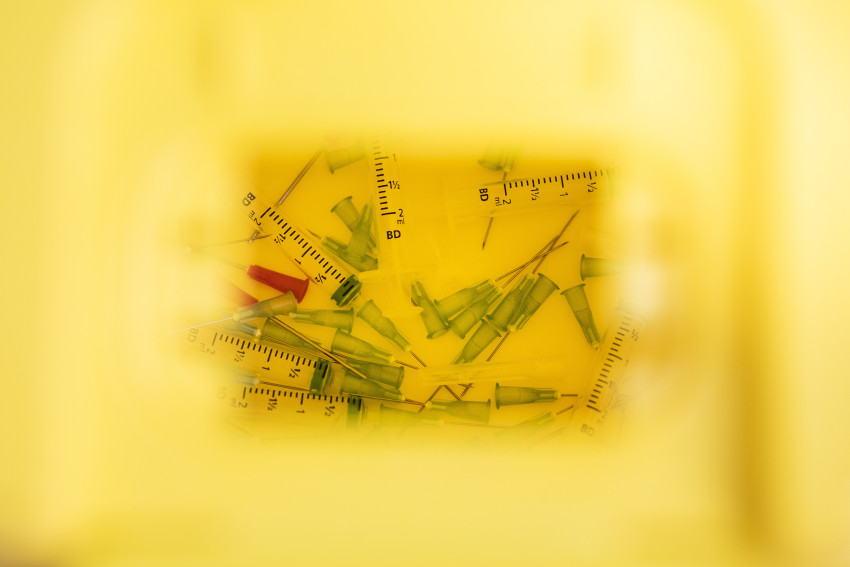EU seeks to improve credibility despite slow vaccine rollout
02 February, 2021

The European Union on Monday defended its flagging coronavirus vaccine program, which includes come under criticism from the World Health Organization, EU states and recently departed member Britain.
Ten days of bad news about stalled deliveries from producers, a rusty rollout by member states were capped last weekend when the EU built a hasty U-turn in plans to create controls on the island of Ireland - between your United Kingdom’s Northern Ireland and the EU’s Republic of Ireland - to make certain vaccines wouldn't be illegally transported to Britain.
Due to the fact avoiding a visible border to hold peace in the island was a key tenet of the Brexit EU-UK divorce agreement, that plan was aborted just before it became a firm decision, yet it left the European Commission, the EU's executive arm, with a good amount of diplomatic egg upon its face.
Britain’s media had a good feast, depicting the EU as untrustworthy, though the UK government kept a minimal profile on the problem.
“These are things which happen while you are functioning at whole speed to deal with a developing situation,” European Commission spokesman Eric Mamer said.
“We have a saying sole the pope is infallible. Important thing is that you recognize them in early stages - in cases like this hence early that it was prior to the decision was finalized - and that you correct them,” he said.
Overall though, the European Commission stood simply by its plans to be sure of exports produced in its territory and make sure these were syphoned off someplace else if the EU contract with producers stipulated that they must be found in the EU. The World Health Organization criticized the new EU export rules as “not helpful.”
The EU was moved to take such measures for the reason that rollout of vaccines to its 27 member states is lagging far behind nations such as Israel and the United Kingdom, and even its own delivery plans. The EU as an institution has a massive stake in the victory of the rollout as a means of showing the value of cooperation and countering those that say it is irrelevant.
Sandra Gallina, the general director in charge of health in the European Commission told legislators Monday that “we bought all the doses that were obtainable in period (...). What we buy, is usually a dose delivered in some schedule in time. It is the whole issue, it really is to really have the companies providing by the time that they possess committed to deliver.”
Despite the repeated setbacks, the EU remains confident member states can perform the commission’s goal that 70% of the adult population over the bloc will be vaccinated by the finish of the summer. Gallina stated the bloc expects to have obtained 400 million doses by the end of June.
Still, critics have said that the European Commission must have started clinching contracts much earlier. AstraZeneca, which can be in a dispute with the EU over deliveries, said Britain was in an advantageous position because it manufactured a deal a couple of months earlier than Brussels.
There is general agreement that the EU got good prices the member states could do not have obtained by themselves and that generous support for the vaccines companies amounting to 2.7 billion euros ($3.3 billion) helped increase research and increase development capacity.
But speed has been the EU’s Achilles’ Heel. Countries such as for example Austria have derided the more unwieldy approval process and Italy features also threatened court action against producers when deliveries started flagging. It is no different in the EU’s biggest member state.
Chancellor Angela Merkel and German state governors held a meeting Monday with representatives of the pharmaceutical industry on methods to strengthen the country’s sluggish vaccination campaign.
By Sunday, some 1.93 million people experienced received their first dose in Germany, a nation of 83 million, and 532,000 had received a second dose Compared, Britain, a country of 67 million, has given almost 9 million people an initial vaccine shot.
“There were reasons why we were slower,” Merkel told reporters following the meeting, citing including the EU's decision to require regular approval for the vaccines, helping boost confidence in the shots, instead of provide more rapidly emergency authorization mainly because happened in Britain.
She noted that AstraZeneca, which initially said it would simply deliver 31 million of a promised first batch of 80 million doses, has decided to supply 9 million additional doses of its vaccine to the EU during the first quarter - bringing the total to half what the company originally aimed for.
Pfizer, which developed the first of all widely tested and approved coronavirus vaccine as well as German firm BioNTech, also said it again expects to improve global production this season from 1.3 million doses to 2 billion. Up to 75 million of those further doses will be delivered to the EU in the next quarter.
“Things will increase, but it is a long road,” said Merkel, adding that the federal government would shoot for transparency on any probable delays.
She said Germany would still be able to offer all adults a vaccine by Sept. 21 - days before the country retains a national election where Merkel won’t are a symbol of chancellor again.
“But nobody can provide the complete final certainty,” Merkel cautioned. “If for example a mutation (of the virus) arises that the vaccine doesn’t focus on, after that we’ll start over again.”
Source: japantoday.com
